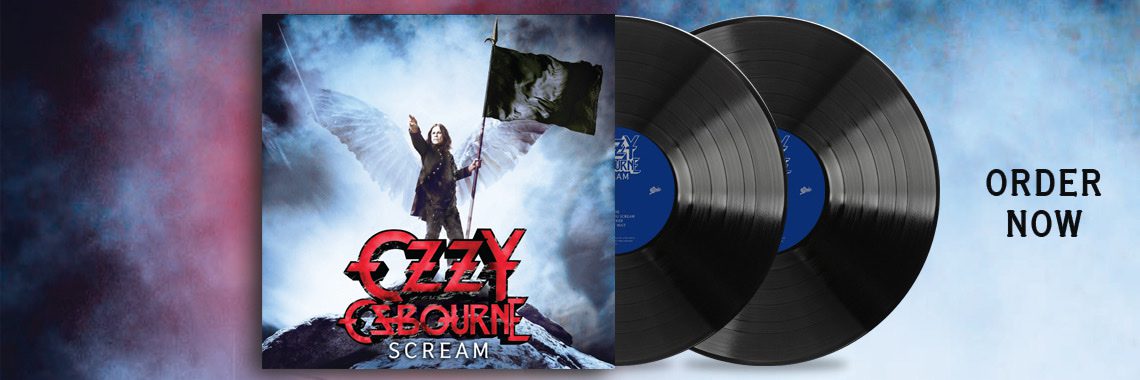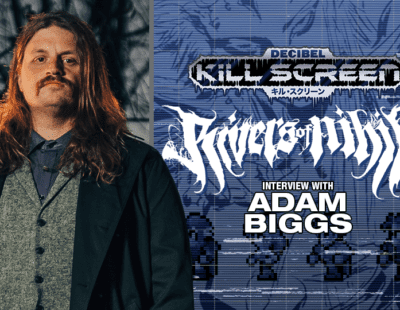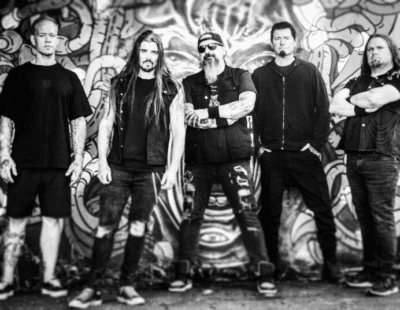** Ohio post-metal/rock outfit If These Trees Could Talk are the latest sensation on Metal Blade. A label normally known for its heavy metal, death metal, and other forms of extreme metal is experiencing a growth spurt into other genres–not unlike its ventures into rock in the ’90s–with the Ohioans leading the charge. The group’s new album, The Bones of a Dying World, continues where 2012’s Red Forest left off, only that’s more expansive, dreamer, more desperate (in spots), nostalgic, more future-positive, and features cooler guitar parts. That If These Trees Could Talk are all-instrumental is of no consequence. Vocals are replaced by interconnected melody lines (guitar and bass), and when it’s all said and one, vocals are hardly missed. See, it’s easy to fall into The Bones of a Dying World’s siren song. From “Solstice” and “Earth Crawler” to “After the Smoke Clears” and “Berlin”, the album’s a bonafide journey down the river of life. If you succumb to it. We sit down with If These Trees Could Talk guitarist Mike Socrates.
I know you’ve been asked a thousand times, but where did the name, If These Trees Could Talk, come from? A subtle reference to Treebeard from Lord of the Rings?
Mike Socrates: The name came from a term that Zack and Cody’s grandpa used to say. When we were debating what name to use, ITTCT was in the mix and we kept going back to it. All these years later, and it’s stuck!
How do you feel The Bones of a Dying World is different or cut from the same cloth as Red Forest?
Mike Socrates: In a way, it was definitely cut from the same cloth, but in a more progressive fashion. We feel this album “steps up the sound” in a way that could only come after Red Forest and not before. The songs were constructed in a much more deliberate and cautious approach. A lot of time was spent on small parts and transitions in order to maximize the full effect of the song as a whole. In a way, we feel like this is the perfect continuation from Red Forest.
I’ve read interviews where you’ve said the “new record is covering new ground”. Can you be more specific as to the areas you’re now exploring, whether sonically or texturally?
Mike Socrates: We just feel that it’s covering more ground from overall song structure standpoint. We didn’t continually ask ourselves “does this sound like the Trees?”. We just went with what felt right and pure and pushed forward with those ideas. We didn’t try to force things just because it sounded like “us”. We pushed things because we felt they needed to be pushed.
What are songwriting sessions like?
Mike Socrates: Most of the initially groundwork is laid out by Zack and Cody. They have a real ear for where the sound lies within the Trees plain, and the rest of us trust that intuition and let them lead the way when comes to developing the sound. In the past, we had more full band “hash out” sessions, whereas this album was constructed more by Zack and Cody and we were brought in to fully realize the end result.
What usually comes first? The melody or the rhythm?
Mike Socrates: Hard to say since we are instrumental, but by and large the rhythm drives the rest of the song so that’s where we start.
Was The Bones of a Dying World inspired by anything in particular? It reminds me of carefree yet uncertain times. Maybe even a little bit of when winter gives into spring. Dark yet hopeful.
Mike Socrates: Mostly uncertain times. We tend to find those meanings as the album progresses. We are coming off of a year and half of just studio stuff, so the band feeling wasn’t really prevalent for a long time. We are finally getting back to that, which gives way to a more hopeful feeling now that we are on the other side.
What were the studio sessions like? I really like the warmth of the sound.
Mike Socrates: We’ve always recorded internally with our drummer Zack. Since the first EP, Zack has always been instrumental is capturing the sound that we strive for. He took great care to not use overdubs or samples on any of the drums to keep the natural feel alive as much as possible. We even worked up a mix where the drums were sampled and tossed it aside. We don’t want to lose the natural feel of the band to technology if we don’t have to.
You got hooked up with Metal Blade through chef Chris Santos? That’s an odd connection in securing a label deal.
Mike Socrates: Yes, but awesome nonetheless! Santos played some of our stuff to Brian Slagel. Slagel sent us a tweet, and after a couple of months of back and forth, we were on Metal Blade! Still crazy to think back to that, but that’s how it went down.
If These Trees Could Talk have been described as post-rock. What do you make of how people have tried to describe your sound?
Mike Socrates: We always love hearing how people interpret our music. One of the great things about being an instrumental band is that it breaks down the language barrier that some bands can have. It reaches across so many lines and evokes so many different feelings that it means something different to everyone. To us, that is one of the single greatest things about what we do. We don’t interpret the music to the fans. They interpret it back to us.
Most people want to hear vocals in their music. Are you guys thinking of vocals or vocal-like lines when writing music?
Mike Socrates: Not necessarily. Our lead guitar player (Cody) has a true ear for guitar melody over top of the groove. I honestly think he’s just writing from the heart and writing from a perspective of “that sounds perfect for that rhythm”.
What do song titles and album titles mean to If These Trees Could Talk if there are no lyrics behind them?
Mike Socrates: Just basis points. As stated above, those song names can be taken in any direction that the listener decides. We just give them a jump off point.
What’s happening on the cover?
Mike Socrates: Charlie Wagers worked up the cover based on photos he took in Iceland. When he was showing us some of them, they spoke to us in regards to the desolate landscape that he captured. We felt it would be a good representation of the album.
This is your first album on Metal Blade. Wider visibility means more ears on If These Trees Could Talk. Any thoughts on expanding the footprint of the band?
Mike Socrates: Most definitely. Currently making plans to achieve that goal. In addition, we hope to have some new ears on us that might not have listened outside of our label involvement.
What are you happy about most with The Bones of a Dying World?
Mike Socrates: I think this record is the perfect follow up to Red Forest. The dynamics and the flow just feel like a perfect next step to the story of us.
Fans connect to your music. How do you think they’ll connect to The Bones of a Dying World?
Mike Socrates: We certainly hope so. We put a lot of blood, sweat and tears into this, so we hope the listeners can feel that and respond in kind.
** If These Trees Could Talk’s new album, The Bones of a Dying World, is out now on Metal Blade Records. It’s available HERE on vinyl and CD.







